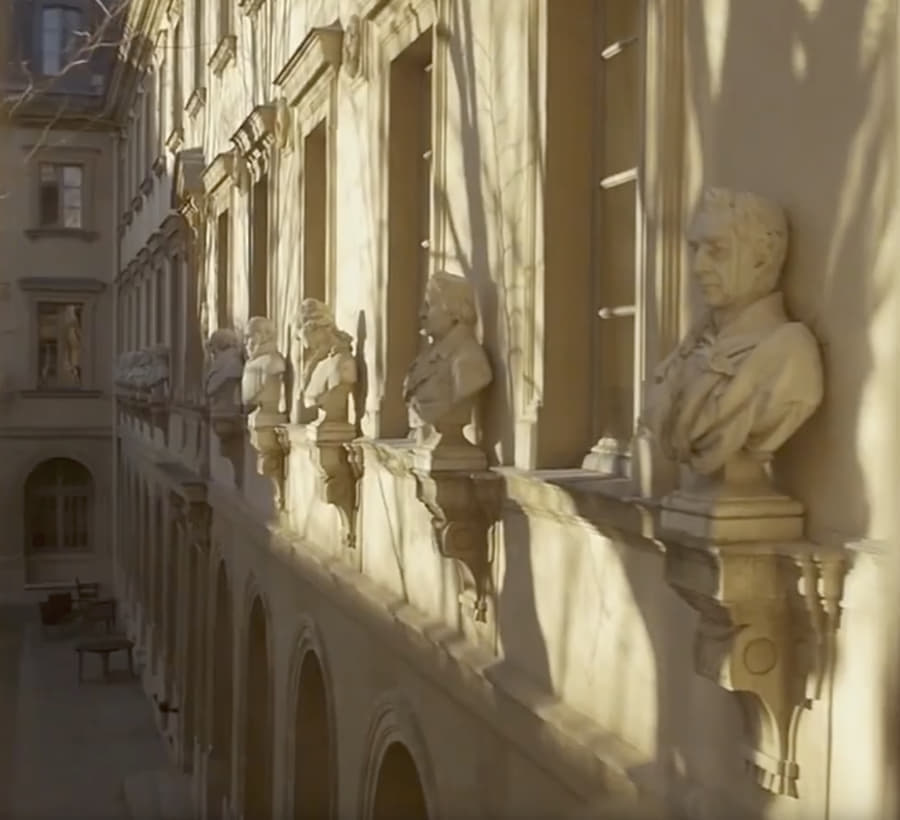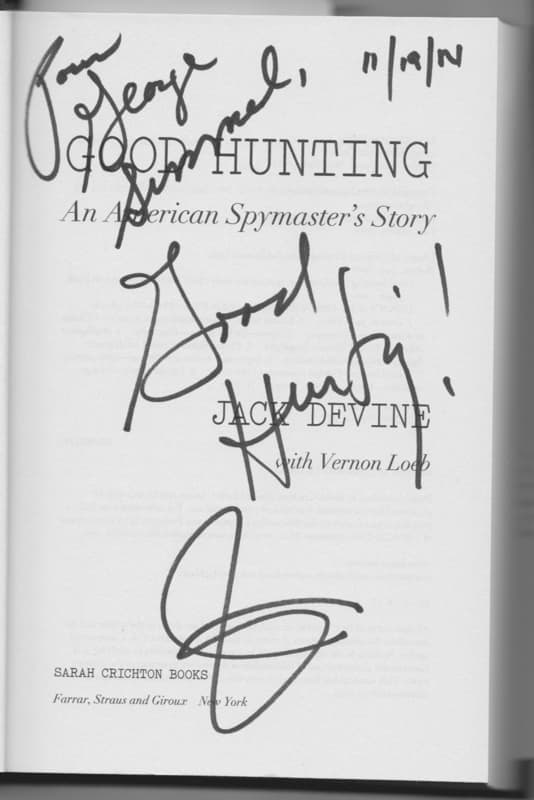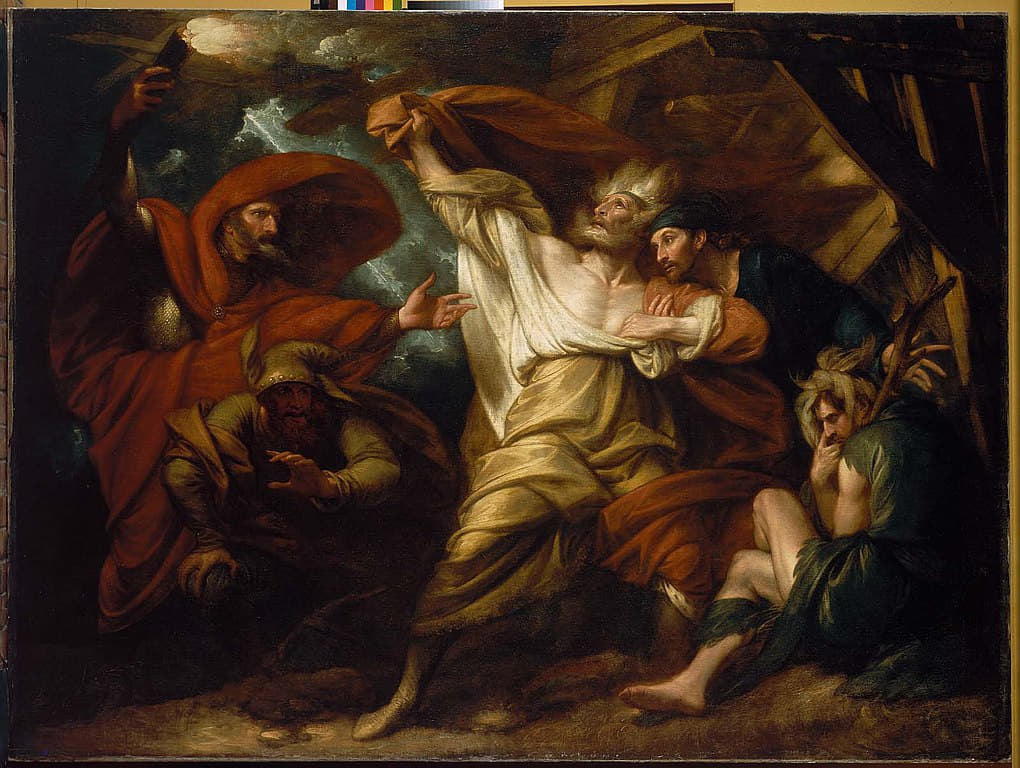French novelist, Clement Scholivé, was interviewed recently by The Postil. His latest novel is not only intriguing but also fast-paced, with a quirky style. This is reflected perfectly by the title and cover: Comme des Espions de Dieu (As if We were God’s Spies) published, in France by Piranha. The cover features a biker embossed on a Templar or Crusader Cross.

The Postil (TP): This is your first novel, I believe. You are what the French call a “primo-romancier.” Besides the cover which appealed to me as a specialist of the Crusades, I got interested because the novel is set at the Ecole normale supérieure, France’s intellectual elite school, of which, I am happy to say, some of The Postil’s contributors are alumni. Very odd locale for a spy-thriller-trafficking-conspiracy novel. Unusual. Are you an alumnus?

Clement Scholivé (CS): No, I am not. But two of my close friends are. They call it “L’Ecole.” Full stop. Very proud of it, but they never throw it in your face, unlike some who bash on about this or that college. But, yeah, the whole set up at l’Ecole is rendered pretty accurately, although I had to adapt it, because the novel covers about eighty years of recent history.
TP: Another setting is a British business school you locate in Fontainebleau. It is new, brash, all mods and cons, in keeping with globalized design. Schools, universities I mean, fascinate you. They form the backbone of the novel, don’t they?
CS: Their—how can I put it—their cruelty fascinates me. Their lust for power also. Their ability (I am talking about the top ones) for surviving through the ages. Regimes come and go. They endure. Some go back nearly two thousand years. I try to use that to my own ends.
TP: And London clubland? It plays quite a role in the novel, too. Your description of the spy ridden, covert manoeuvring in an unnamed Pall Mall club makes for riveting reading. You plunge your readers into it, headlong.
CS: I had fun piecing it together from several sources. I hope I did not make it too satirical. Or theatrical. In fact…
(silence)
TP: In fact…?
CS: Well, I can’t give away the plot, can I? Let’s say that I see education like a Shakespearian theatre. Not “all’s world is a stage,” that’s comedy, but what happens backstage; that’s where the action is. Unis, clubs are prime sites for observing the human comedy unfold.
TP: In fact, the title Comme des Espions de Dieu is a famous line from King Lear.
CS: It is. But I nearly chose a quote from General Patton’s war poem, “darkly the age long strife I see.” Too long. But reads well in French.
TP: A propos, you are bilingual, you wrote your novel in French, why not in English?
(He laughs)
CS: Simply because I had a publisher, and a good one, and he is French. What more do you want!
TP: Touché. Piranha published it in their “noir” series. Now, is it a spy novel? A thriller? About murders and suicides spiced up by blackmail? A conspiracist novel? An insider’s version of European secret wars since the 1930s? A personal Bildungsroman? Noir, really?
CS: Well, the cover is noir, is it not? Joking aside, I really did not write it to fit into any genre. Nor am I into using novel-writing to prove points. I wanted to tell a story about the transmission of values, to paint a picture of fidelity to an ideal, passed from father or mother to son, and from spiritual father, a mentor, to spiritual son, and to recount how bright young things are prepped and channelled toward a secret, yet rich life at the service of that ideal. And how they come to value the sacred knot of friendship. How they are trained also to become inconspicuous while they would expect to get the top jobs and shine, and drive an Aston Martin, and all the rest of it. But they accept to remain discrete, to disappear, to become transparent.
TP: Still, Comme des Espions de Dieu can be read as a dramatic fresco about the glories and miseries of libido sciendi, libido sentiendi and libido dominandi, all tied up. I refer to Saint Augustine’s theory of domination, through knowledge, sex and seduction, and power.
CS: Gosh, Saint Augustine, who would have thought? Above my pay grade. But yes, the characters are smart, they are raunchy, they plot and connive. For sure, they’ve got plenty libido.
TP: Still, you are well read, and it shows. You quote the Classics, but I must say—on cue.
CS: Some quote Bob Dylan. I quote Goethe. Each to their own. I don’t pretend. Hope not.
TP: Quite. You don’t pretend. Now, you describe how four young men get recruited, and then intellectually trained by their mentor George. It can be physical, too. I think of that brilliant Norwegian MBA graduate who is subjected to commando training. The episode of his solo, as you call it, in Hong Kong is epic. You located it at the famous Foreign Correspondents’ Club. You’ve been there?
CS: Of course. I call it the CCE. I write about what I know first hand. Reality matters in fiction.

TP: Back to what pricked my curiosity. The cover shows a biker roaring forward, as if racing out of a red Templar cross. Odd combination.
CS: Think so?
TP: You tell me.
CS: My favourite character is not the prominent, in your face one, George, but his long-time school mate, a Communist who had gone though all the illusions and disillusions of decaying Marxism, from the 1980s onward. The guy is passionate and ascetic. As a young man, his handler could not control him. He…
(CS hesitates, looks away, and at my phone recording our conversation)
TP: He…?
TP: I knew someone like him in Paris, at college. Lycée actually. We were boarders. He was pure. Young communist. He died pure. He was, since you mentioned the word Templar, he was a red Templar. Let’s leave it at that (a silence). Sorry, I get emotional thinking of him. He was a biker. Rode a Ducati.
TP: You depict, with sensitivity, a range of quite realistic characters: domineering elders, British business men and global power women, bright young things as you call them, two elderly ladies (what a pair!) who run a bookstore of sorts, a Polish linguist who gives appointments in Parisian bath houses, a sarcastic French commissaire specialized in money laundering by varsities—Depardieu would play him well—and young misfits, lost souls, rebels used and abused, craving for love, in a society that does not actually care for them. But George does. He cares.

CS: Does he? He recruits them; that is what he is tasked with. He himself was recruited, by a woman. In Munich.
TP: Quite right. It is a juicy part.
CS: Glad you like it. But, for me, no one is a reject. Problem is that society today cares by default, not by design, of those who fall by the wayside. They get forced into pre-assigned slots of fake compassion. Managed charity. Even their freedom to fall from grace is denied its own unique character. But, that’s taking us away from the story, the plot and all that.
TP: I wonder. In the novel George learns to care.
CS: The harsh way, yes. Look, I leave it to George who is a professor of strategy anyway; that’s his cover, to elaborate on ideas. He does, I mean, he reflects, when he wants out. When he doubts, he is doing right. When people suffer. When the unexpected happens.
TP: As in the near epiphanic dialogue, in Paris’ Allées du Luxembourg, between him and an American newbie, who has just …
CS: Spoiler alert!
(We laugh)
TP: Let’s stay with George Simmel. He recruits and mentors, and we witness his deft craftwork in detail. He is implacable. Is he real?
CS: No, he is not. I mean, your first point—he prises open recruits by allowing them to “let it out,” because he has to see if they’ve got what it takes, but he never treats them like expendable commodities. He has empathy, but no need to show it. Second point, yes, he is real. But he could be standing there (he points to the bar) you would not notice him. He blends in.
TP: A different tack, to end our conversation. Mothers and fathers matter in your story. And they are formidable. What a character, in both senses of the word is his mother, Adélaïde. That old lady knows the game.
CS: Sure. She has seen it all since the 1950s. Women are silent observers. I like them. At least those I know, and try to portray. Yeah, filial devotion is important to me, and for George, and in the novel. Fidelity to kin and friends.
TP: Why?
CS: Living one’s life is a matter of honor. Honor matters.
Featured: King Lear, by Benjamin West; painted in 1788.
